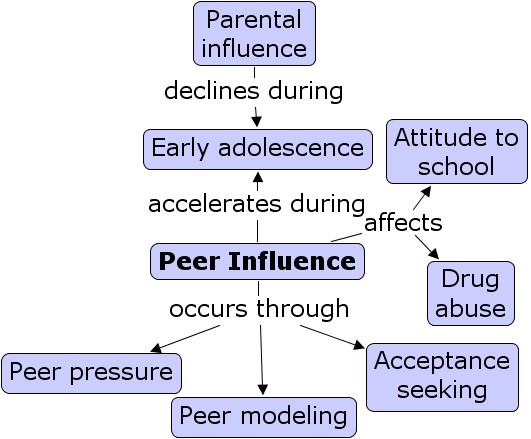Personal, Social and Emotional Development
Updated for fall, 2005
Erikson's 8 Stages of Psychosocial Development
- Basic trust versus basic mistrust - birth to 18 months
- Autonomy versus shame and doubt - 18 months to 3 years
- Initiative versus guilt - 3 to 6 years
- Industry versus inferiority - 6 to 12 years
- Identity versus role confusion - adolescence
- Intimacy versus isolation - young adulthood
- Generativity versus stagnation - middle adulthood
- Ego integrity versus dispair - late adulthood
Identity Status in Adolescence

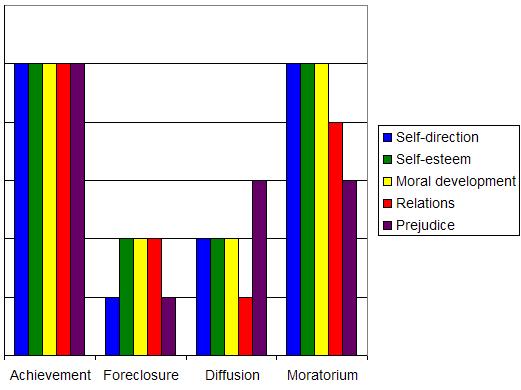
What is misleading about this bar graph?
Self Concept
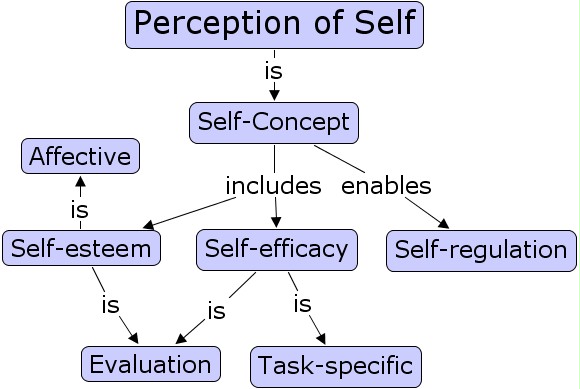
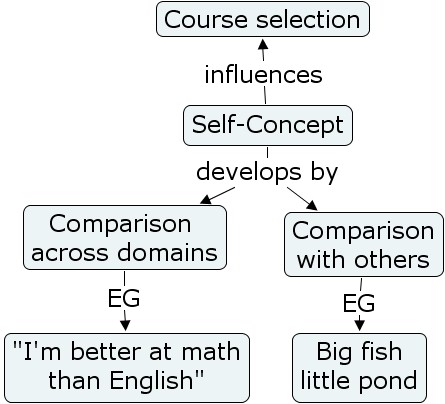
Self Esteem
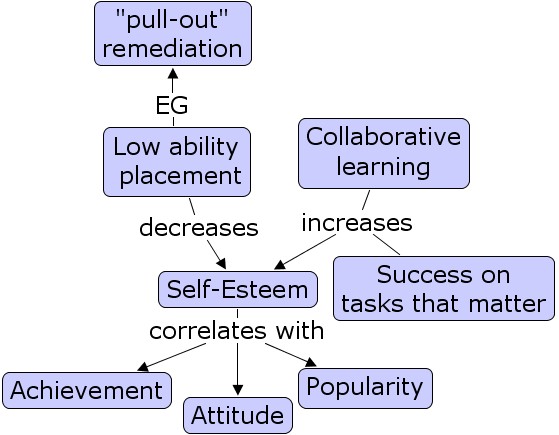
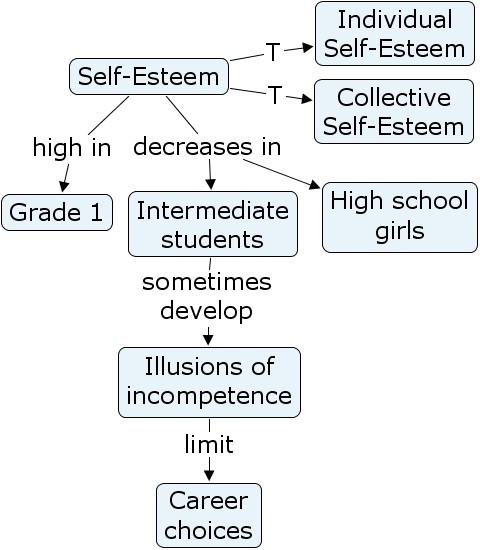
Piagetian Moral Development
 |
Based
on his observations of children's application of rules when playing,
Piaget determined that morality, too, can be considered a developmental
process. For example, Ben, a ten year old studied by Piaget, provided
the following critique of a rule made-up by a child playing marbles:
"it isn't a rule! It's a wrong rule because it's outside of the rules.
A fair rule is one that is in the game". Ben believed in the absolute
and intrinsic truth of the rules, characteristic of early moral
reasoning. In contrast, Vua, aged thirteen, illustrates an
understanding of the reasoning behind the application of rules,
characteristic of later moral thinking. When asked to consider the
fairness of a made-up rule compared to a traditional rule, Vua replied
"It is just as fair because the marbles are far apart"(making the game
equally difficult).
|
 |
| |
-- Larry Nucci (2004)
http://tigger.uic.edu/~lnucci/MoralEd/overview.html
|
|
* For children at an
early stage of moral development, morality is defined by the rules
provided by their parents and society.
* They do not consider the
intention or "spirit" of laws. Nor do they distinguish between rules
governing social manners and rules governing morality.
* Piaget believed that preschool children often do not consider intention when
judging the morality of others' actions. For children in this stage it
is the actions that count, not the thinking behind them.
* This "moral realism" may also involve the belief that immoral acts inevitably lead to punishment (immanent justice).
Kohlberg's Theory of Moral Development
Preconventional Moral Reasoning
stage 1: Punishment-Obedience Orientation
stage 2: Personal Reward Orientation
Conventional Moral Reasoning
stage 3: Good Boy/Nice Girl Orientation
stage 4: Law and Order Orientation
Postconventional Moral Reasoning
stage 5: Social Contract Orientation
stage 6: Universal Ethical Principle Orientation
Postconventional Moral Reasoning
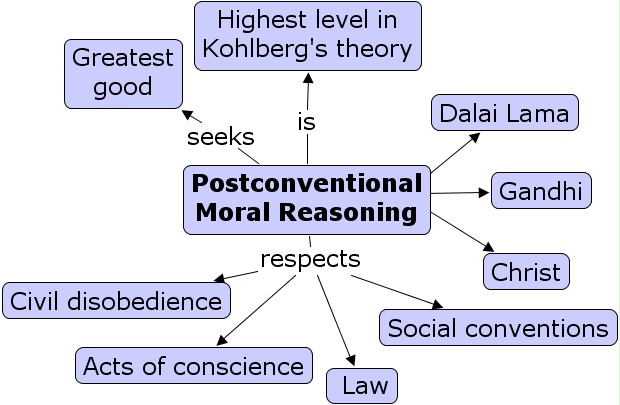
Gilligan's Theory: The Morality of Caring
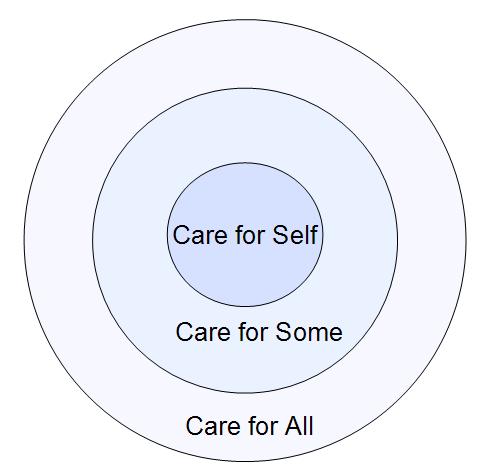
Peer Influence
